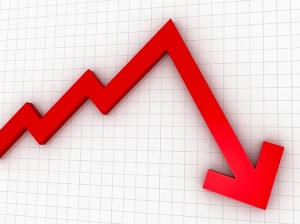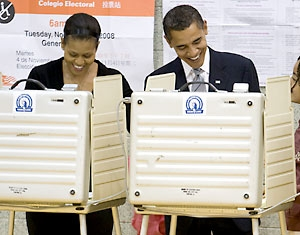 A great friend and best-selling author—Terri Giuliano Long—recently wrote a two-part piece about the “ugly truth” regarding consumer book ratings these days. You can read Part I on HuffPost here, and Part II on Indie Reader here. Suffice to say that the value of consumer scoring—particularly as it pertains to indie books—seems in many ways to be overinflated at best and more like a penny stock at worst.
A great friend and best-selling author—Terri Giuliano Long—recently wrote a two-part piece about the “ugly truth” regarding consumer book ratings these days. You can read Part I on HuffPost here, and Part II on Indie Reader here. Suffice to say that the value of consumer scoring—particularly as it pertains to indie books—seems in many ways to be overinflated at best and more like a penny stock at worst.
The issue for me isn’t the reliability and/or the motivation behind the rating as much as it is the way that most reviewers seem to have taken an “all or none” approach when it comes to a score.
I read a post recently by an author who was disgruntled at the idea of another author reviewing/scoring their own book. My knee-jerk reaction was to agree. Then I got to thinking. Presidential candidates vote for themselves. In fact, the media makes a relatively big deal out of the moment—filming the candidate walking magnanimously into the voting booth and exiting with a Cheshire cat smile. Why shouldn’t an author have their own vote and say as to the quality of their book? As long as they identify themselves as such, then I (the consumer) can choose to accept or discredit their opinion accordingly.
However, the concept got me to thinking. How would I score my own first book? What would I write in a review? The fact that my answer was (and is) “it depends” bothers me. It shouldn’t depend. What I mean to say is, if I (or anyone else) want to offer up an objective review of a book (whether mine or anyone else’s) there ought to be an unbiased scale and criteria by which to do so. I am not sure there is one any longer.
Look at the sheer magnitude of 4 and 5-star reviews out there. I challenge you to find a book—indie, bestseller, noseller—that does not have a preponderance of 4 and 5-star reviews. I am sure there are some out there, but I believe the majority of books you examine will have 4 and 5-star reviews outnumbering other scores 5:1.
 To me, a 5-star review should represent equivalency to the best books the reviewer has read. 4-star should represent something just below that level (obviously there is more subjectivity the further down the scale one goes).
To me, a 5-star review should represent equivalency to the best books the reviewer has read. 4-star should represent something just below that level (obviously there is more subjectivity the further down the scale one goes).
Now I am not taking the stance that these numbers represent anything dishonest, disreputable, or a conspiracy in and of themselves. Are there cases where book reviews are stacked in the favor of the author? Certainly. But a slew of 5-star reviews by itself is proof of nothing unethical. However, I assert it is proof of something far more damaging:
The diluting of the consumer rating system.
Let me put it in the form of a question: if most books are “5-star”, meaning their average score is close to (or at) a 5-star level, what do we ascribe to the best of the best—those books whose quality is almost unarguably higher than average?
The fact is, when 5-star becomes the “norm” or the “average”, it’s not the top score any longer.
Back to my own book. When I contemplated a self-review of my first book, I thought to myself that I would likely give my book three stars and a commensurate write-up. My reasoning was sound:
I personally think it is a solid fledgling effort, but it is far from a 5-star for me personally. How could it be? What score would I then give the wonderful writers who I myself idolize, emulate, and to whom I strive to become more akin?
And I could not give it four stars because I know in my heart it is not my best effort. For one thing, it is my first book. I would hope my writing improves over time.
So to me, on a generally unbiased 5-star scale, I give mine a three. HOWEVER, we are not dealing with an unbiased (or even healthy) scale. Most books receive an avalanche of 5-star reviews. Mine included. In fact, the first 25 reviews of my book were 5-star.
I look at the situation like this: if I were suddenly to ask all reviewers to consider the above arguments and give my book (or any book) three stars, in the current market said books would look TERRIBLE. You’d have to ask yourself “in an atmosphere were almost every book scores 4 or 5 stars, how bad must THIS book be to get all these 3-star reviews?”
Because of this, I give many more 4 and 5-star reviews than I probably should…but I don’t want to hurt a book I liked when it’s measured against what the scale means now, not what it should mean.
See where I’m going with this? The scale is horribly skewed, and therefore, rather worthless I think. I have a much better suggestion—whatever the scores, whatever the reviews, and whatever the method of publication:
Read the sample.
![free-samples[3]](http://robonwriting.com/wp-content/uploads/2011/12/free-samples3-300x300.jpg) There are so many discussions, debates, arguments, and even virtual knock-down brawls about consumer reviews, rating systems, etc. Why wouldn’t a person base their buy/no-buy decision on a sampling of the work? Truth is, liking (or even loving) a sample is still no guarantee, but at a reasonable price, I am willing to take the risk based on the writing itself.
There are so many discussions, debates, arguments, and even virtual knock-down brawls about consumer reviews, rating systems, etc. Why wouldn’t a person base their buy/no-buy decision on a sampling of the work? Truth is, liking (or even loving) a sample is still no guarantee, but at a reasonable price, I am willing to take the risk based on the writing itself.
In the end, that’s how I always base my consumer decisions. I’m not buying a car, a book, or even a paper plate based solely on the words (or scoring) of others. How can they possibly know my tastes, idiosyncrasies, biases, or anything else that influences my purchases? Sure, great reviews can be helpful, particularly as a first filter, but in the end, if you aren’t sampling the product before you buy, I have little sympathy for you.
READ SOME OF THE BOOK. If you don’t care for it, don’t buy it.
Here’s a reality about reviews you may not have considered:
Most people who take the time to write a review of a product, and who are not paid to do so, probably either love it or hate it. When was the last time you reviewed a product that was mediocre (unless its very mediocrity incensed you so much that you had to talk about it)? Yes, it happens. But a lot of reviews are written from the extreme vantage point. It is human nature. We are busy creatures, so we write about things important to us.
Whether we love them or hate them.
And take reviews for what they are: the opinions of people you likely don’t know, coming from a vantage point you don’t necessarily understand, drawing on personal experiences, likes, dislikes, and innate opinions you may never have.
It used to be that reviewing a writer’s work was one of the kindest things you could do for him or her. I think it still is. Certainly the words in the review stand for something, regardless of the number of stars. I say focus there. Tell other consumers why you liked or disliked the book. Don’t just spit out a flat endorsement. Be specific. Talk about the things you tend to like, dislike, etc. In other words, let the potential buyer know something about YOU. That will help them make an informed decision about the product.
The WORDS should represent more, and go a lot further, than any number of gold stars anyway.
We are, after all, talking about books. And writers.
~~~~~~~~~~~~~~~~~~~~~~~~~~~~~~~~~
The blank page is dead…long live the blank page.
~~~~~~~~~~~~~~~~~~~~~~~~~~~~~~~~~




Rob you have again produced a master piece of a post! I love your blogs. Its funny you should bring this subject up, I am inclined to agree with you, if I was rating my book I would most definately give it a 3 or 4 star, not because I think it bad but as you mentioned it was my first book, and I have much to improve on which I am very aware. But if every book is recieving 5 stars then it takes away from the very very special and I would say brilliant books – A higher rating maybe which has special requirements before recieving could be an answer who knows . You however are a 5 star masterpiece in my opinion. 🙂
Amazing. I was just thinking about this. I got a 4-star review on Character Development and I was surprisingly elated because it suddenly humanized my book. It somehow seems more real now. My guess is that people hate to say bad things or else LOVE to say bad things. But nobody likes to say “meh.” Good post indeed, sir.
This is something that I’ve noticed too. I think star ratings are even less accurate now. (not that they ever were) Literature, like art is subjective, words resonate differently with every reader. I especially agree with your suggestion that reading a sample before buying is more reliable than a gold star.
[…] genuinely love a book and want to share it with their friends and virtual strangers. Indie author Rob ‘R.S.’ Guthrie does a great job of explaining this: Most people who take the time to write a review of a product, […]